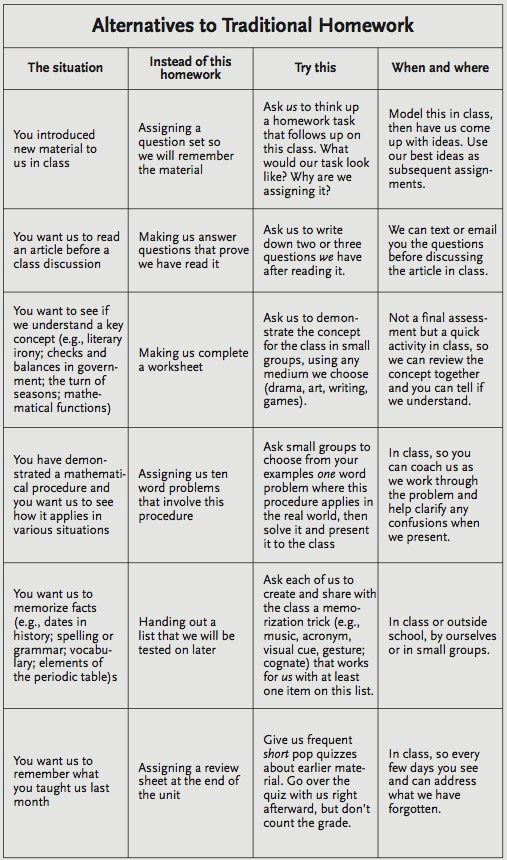Homework is a hot topic with many different philosophical
beliefs. Learning is becoming a 24/7
endeavor for students, especially with respect to technology that is readily at
their hands. So, is homework necessary? I do believe there is a place for strategic “practice”
outside the school day. When I was
teaching, I would ask students to finish their “opportunity” at home. It was their “opportunity” to showcase their
learning for the day! The word
“homework” tends to have a negative connotation, whereas “opportunity” or
“practice” can empower learning and learners.
I understand that it is just a word; however, it is a powerful word, and
changing our mindset can transform traditional homework assignments into
empowered practice.
Watch this inspirational Youtube video via Rick Wormeli:
- We call it practice in our classroom.
- Homework has emotional baggage…
between parent and child or child and teacher.
- Give different practice for
different levels of readiness.
- Homework is formative in nature
What
percentage of a student's grade should homework be counted toward? Should I
give the same homework assignment to each student in the class? And if a
student demonstrates mastery, yet doesn't turn in homework, is it accurate to
give them a lower grade for the course? Rick Wormeli (Fair Isn't Always Equal)
offers his take on the burning issue of homework.
As a staff,
we watched Rick Wormeli’s video and organized dialogue with respect to our
homework beliefs and expectations. We
asked the questions:
·
How do we give feedback on homework?
·
What do our parents think about homework?
·
What do our students think about homework?
·
What do teachers think about homework?
·
What is the roll of homework?
These
questions, along with academic research and watching videos like the one above,
truly shape our conversations about after-school learning. We want students to be motivated and
empowered to learn outside the school day.
Throughout the year we will continue to analyze our philosophical
beliefs and discuss methods to enhance our current procedures. Continuing to
find ways to make after-school learning more relevant and differentiated for
learners of diverse readiness levels is vital.
We plan to utilize the attached chart as a guide to generate
conversation in our never-ending quest to improve student engagement. Alternatives to Traditional Homework

Homework
conversations are not just isolated to my career as a building principal. I am experiencing these conversations as a
parent of two school-aged children. They
both receive appropriate practice that is congruent with their developmental
level; however, my son doesn’t enjoy homework.
Can you believe it? The son of a
principal doesn’t enjoy homework! It
definitely can be a challenge for him, particularly reading and writing
assignments. He becomes very frustrated,
not because he is unable to do the work, because he thinks it is boring. We try to make it a game and provide some
incentives from time to time. We always
“talk it up,” showing excitement when he brings it home, giving accolades for
his efforts and breaking assignments into chunks so it isn’t as
overwhelming. His homework is
appropriate (needed practice), focused on skill building, and the assignments
seem to connect to student interests and ability level.
My son’s
teacher has also implemented an interesting Team Approach to completing
homework assignments. The process is differentiation with student
choice being at the forefront of many practice assignments. My son is even excited about receiving points. I imagine that his teacher is modeling
enthusiasm surrounding this approach and it is catching on with her
students. My son is also enjoying the
choices involved within the spelling practice.
It is giving him ownership over the practice, where he is assuming
responsibility for his own learning. The
extra effort seems very empowering and I applaud the teacher! My only suggestion would be to change the
word "homework" to "practice," but it is a difficult thing
to do when the word is so embedded into our culture. All in all, my son seems to be off to a nice
start in 2nd grade in regard to nightly homework... I mean... practice!
The debate
will carry on and homework will continue to be given to students. Children need to be assigned practice and
activities to build skills; such as memorizing facts, spelling, word study,
etc. My suggestion to all educators and
parents is to provide targeted and differentiated practice, allowing for choice
and empowering students to assume responsibility of their own learning.
Remember to
embark on all homework decisions with a basic question: Is it good for children?
Have a great
week!



It's valuable to start any conversation about work outside of the classroom by looking at its purpose. I love how your son's teacher is empowering her students through choice. I also love having this conversation with your staff. Thank you for sharing their responses -- it gives me a lot to think about.
ReplyDeleteThanks for reading! HW has always been something that generates a lot of conversation. Have a great week!
DeleteI'll second Amy's comment about the value of choice in homework.
ReplyDeleteFar too often we (parents AND teachers) confuse homework with rigor. By no stretch of the imagination am I an anti-homework person, but we must ensure that the homework we assign is purposeful and meaningful to our students.
Thanks for reading! I feel it needs to be purposeful, meaningful, and differentiated while providing some choice. Empowering students is the key. Have a great week!
Delete